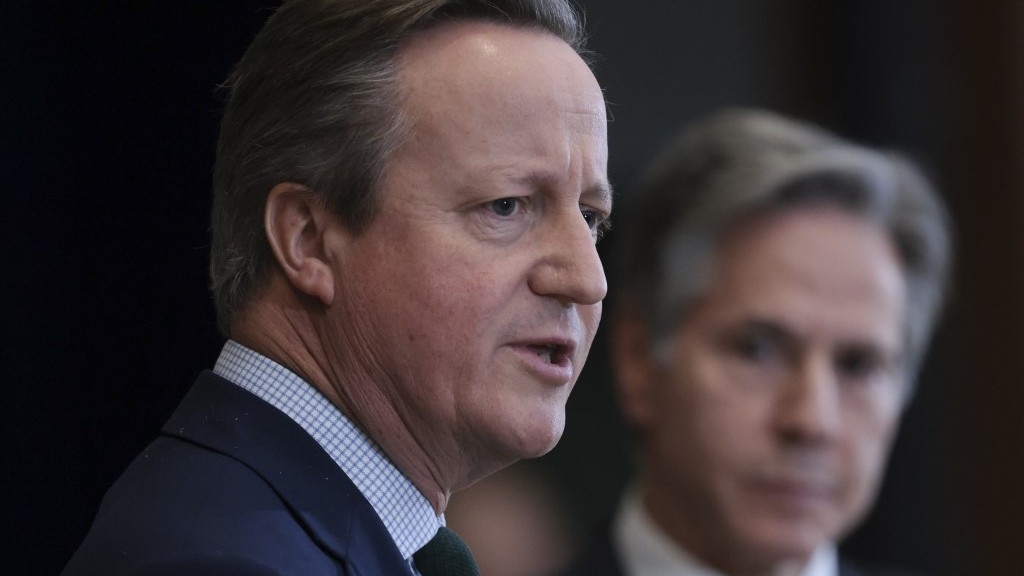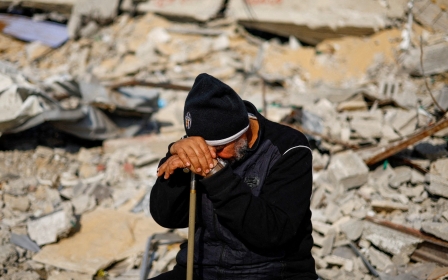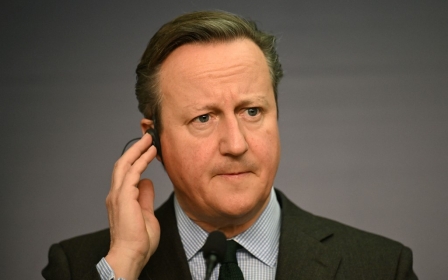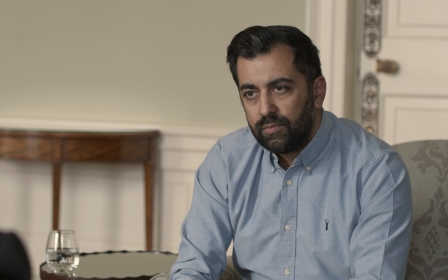UK could play 'crucial role' to resolve Israel-Palestine conflict, MPs told

The UK could play a "crucial role" in resolving the Israeli-Palestinian conflict, particularly by persuading the US to recognise a Palestinian state, MPs were told this week.
Foreign Minister David Cameron suggested last month that the UK and its allies could recognise a Palestinian state as part of a diplomatic effort towards a two-state solution.
The proposal broke with historic assumptions that a Palestinian state would be recognised close to the end of negotiations.
Such a move, several experts told the UK Parliament's Foreign Affairs Committee, could create a power balance more conducive for peacemaking.
"Negotiations on the basis of two member states of the UN with one member state occupying another?" Gershon Baskin, co-chairman of the Israel/Palestine Center for Research and Information, said rhetorically.
Stay informed with MEE's newsletters
Sign up to get the latest alerts, insights and analysis, starting with Turkey Unpacked
"That automatically changes the dynamics and the parameters of those negotiations."
"You have talked about a two-state solution for 30 years. It's time to remove Israel's veto on the question of statehood," he told the MPs.
'For the first time, the UK is a step ahead of the Americans'
- Samer Sinijlawi, Jerusalem Development Fund
States that have not yet recognised Israel, Baskin said, should do so as well.
Samer Sinijlawi, founding chairman of the Jerusalem Development Fund, said that he believes British recognition of Palestine would give momentum to any peace process.
"For the first time, the UK is a step ahead of the Americans," Sinijlawi said. "The UK can start some steps and motivate the Americans to follow."
The recognition of Palestine by the UK and the US, he said, could help bring Saudi Arabia into the fold of Arab countries that have normalised relations with Israel in recent years.
It looked as if Saudi Arabia was close to normalising relations with Israel before the Hamas-led attacks on 7 October.
Since then, Saudi diplomats have said the possibility remains open, but any deal must lead to the creation of a Palestinian state.
The kingdom will be key to the peace process both for the leverage the country holds over Israel as it continues to hold normalisation as a possibility, as well as the funding it could offer for the reconstruction of Gaza, several experts suggested.
Sinijlawi, however, cautioned that there is a small window left to restart a two-state push.
"If the two-state solution will not be implemented before the end of this year, you should say goodbye to this option," he said. "Younger generations of Palestinians think more of the one-state options."
UK as convenor
Tuesday's evidence hearing formed part of the foreign affairs committee's ongoing inquiry on the UK's engagement with the Middle East and North Africa.
Former UK Middle East Minister Alistair Burt also underlined the fundamental role Saudi Arabia could play moving forward, but said that after 7 October, it is now clear the Palestinian issue “has to be part of the resolution and that is a good thing”.
Burt said the Abraham Accords, the Trump administration's initiative to bring peace by normalising relations between Israel and Arab states, had not been "the answer" to bringing about a resolution to the Israeli-Palestinian conflict.
He said he had warned Jason Greenblatt, Trump’s Middle East peace envoy, to ensure that the so-called "Deal of the Century" would not “humiliate the Palestinians” or rely on money to bring peace.
In the end, however, the former minister said while the accords gave a useful projection of how the Middle East could operate in the future, they ignored the Palestinian issue at their own peril.
They reinforced for some Israeli politicians that "the Palestinian issue was marginal", and could be put to one side while good relations with Arab states were formed.
“For Palestinians, it looked as though this was another abandonment and this was an abandonment by those immediately around them," Burt said.
The UK's role as a convenor, he added, was "very important".
"We aren't the richest. We aren't the most powerful. We aren't the strongest military power, but people come to us because of our long history. It's not always been good, but we do know the area and we are trusted," he said.
Ways forward
Edward Said Professor of Modern Arab Studies at Columbia University Rashid Khalidi told the committee that Palestinian aspirations for statehood had "always been blocked by major powers", including the US and the UK.
"If occupation is illegal, end occupation. If settlements are illegal, stop funding them. That would help somewhat to shift the balance and bring the Israelis to reason," he said.
"They think they can play with the power of the greatest superpower on Earth behind them."
Miri Eisin, a retired colonel in the Israeli army and managing director of the International Institute for Counter-Terrorism in Israel, told the MPs that Israelis "do not think of ourselves as powerful", an insight that she said the international community does not recognise.
"We think of ourselves not as weak, but as our need, in that sense, to have our strength versus what we perceive as enemies," Eisin said. "It's about our entire location and surroundings."
Saying she was speaking as an Israeli, not as an analyst, Eisin cited a Hebrew saying: "In the end, we are going to be the ones standing alone. If I don't have myself, who else do I have?"
Eisin said a two-state solution "is something I could call a historic compromise, not a happily ever after" and one that needs to be done, but a difficult agreement to make right now given the high emotions on both sides.
"How do you arrive at getting back to a connection between Gaza, the West Bank, and East Jerusalem as an area? I don't have a solution right now. I believe it's doable," she said.
'The basic absolute neccessity is equal rights for everybody'
- Rashid Khalidi, Columbia University
Khalidi said "to create an atmosphere for anything better", the war must stop.
"The shilly-shallying and the dilly-dallying of the international community is frankly appalling," he said. "I expect the US to end the war. I expect the UK to help in the process."
Moving forward, he said, Israel's occupation of Palestinian territories would have to end for any just solution because, currently, Palestinians would be obliged to accept 22 percent of their ancestral homeland, 60 percent of which is occupied by settlers.
"This airy-fairy discussion of two states doesn't come to grips with the reasons that we don't have a two-state solution and that's because you have 70,000 Israeli settlers, a permanent 56-year occupation," Khalidi said.
"I could go on about what you'd need to have a just two-state or one-state solution. The basic absolute necessity is equal rights for everybody."
Middle East Eye delivers independent and unrivalled coverage and analysis of the Middle East, North Africa and beyond. To learn more about republishing this content and the associated fees, please fill out this form. More about MEE can be found here.





